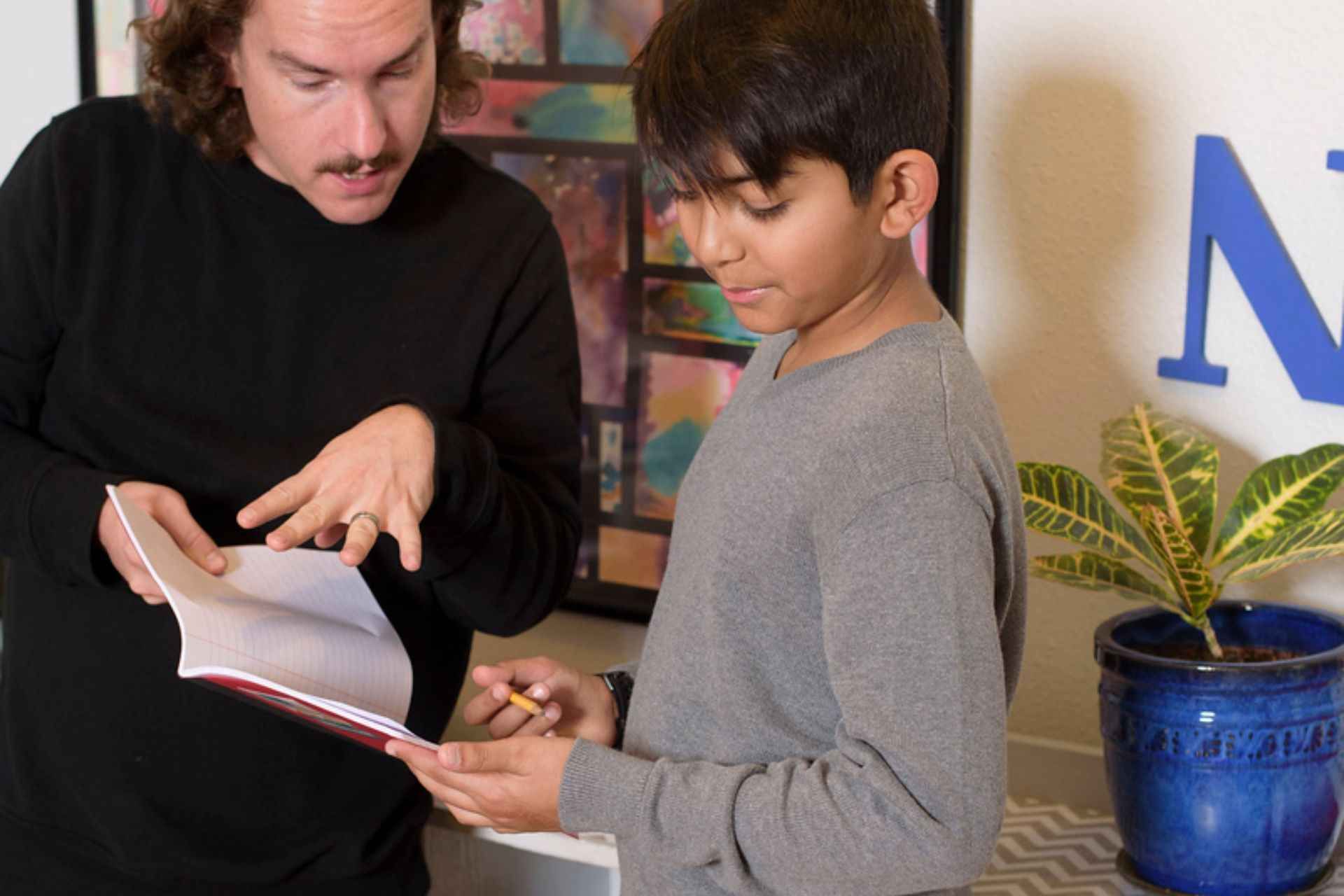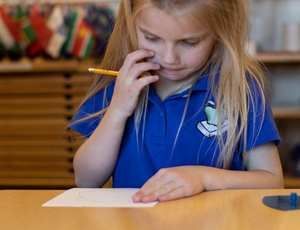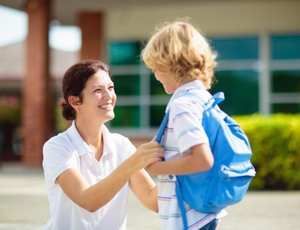Summer, Montessori-Style
Summer is a great time to relax a bit, have fun as a family, and enjoy some new experiences. If you’re looking to continue your child’s Montessori experience at home during these warmer months, you have come to the right place. We believe in keeping it simple, but here are some tips you might appreciate!
Take a Deep-Dive Into Personal Interests
Is your child into dinosaurs? Ancient Egypt? Horses? Summer can be the perfect time to help them explore these interests further. The key is to find ways to work their passions into the types of things you were already going to do anyway. A few places to start:
● Ask your local librarian for help finding both nonfiction and fiction books that would appeal to your child’s interests.
● Figure out if there are any relevant day trips you could take to get in-person experiences (museums, farms, historical sights, parks, etc.)
● Find ways to bring your child’s interests into the kitchen. You might find yourself recreating various cultural dishes or baking up some panda-shaped cookies.
● Turn family movie night into a learning experience with a documentary.
Connect With Each Other
Find ways to reconnect. During the regular school year, life can get busy. Embrace the slower pace of summer and reevaluate how you and your child can spend meaningful time together. This will change as they get older, as will your common interests.
As with all things Montessori, just remember to follow the child.
If you have an infant, toddler, or preschooler, your together time will include lots of cuddles and caretaking. It’s almost easiest at this age, because our youngest children rely so heavily on our presence. (Just remember to take a little time for yourself!)
As your child gets older, continues to develop their independence, and socializes increasingly with their peers, there will naturally be more changes in how you interact with each other. Spending time outdoors together is a favorite for many families, as is creating regular traditions (like the family movie night we mentioned earlier).
Get Outside! (Of Course)
We know you won’t be surprised to hear us encouraging this point! During the school year, kids get outside every day for recess. Now that they’re home more, it’s critical to ensure they’re still getting this time. Combine their needs with the gorgeous weather, and you’ll find endless opportunities.
For the little ones: go to a playground, take a walk in a local park, or just sit out in front of your house. They will delight in watching a bug crawl by, smelling the scent of flowers, and feeling the dirt on their bare feet.
For older children and teens: the possibilities are endless. Keeping their developmental needs in the forefront of your mind will make them much more likely to be enthusiastic. This could include making time outside a social activity with their friends, giving them choices of activities, and making it a regular part of their daily routine.
Read, Read, Read
Kids may take a break from academics in the summer, but reading should never stop. It’s important to find ways to make reading a part of the daily routine, no matter the age of your child. For pre readers, find a time you can sit together each day to read a book together. For older kids, carve out plenty of time for them to read on their own daily. A few tips to keep the reading going:
● Let your child see you reading for enjoyment. They want to model their behavior after you, and this can be very powerful.
● Get excited about books. Make sure your child knows they are important to your family.
● Don’t push emerging readers too hard. Give them access to books, read to them, but recognize that they need to feel good about books.
● Ask for help when it comes to book-resistant tweens. Some kids seem like they don’t want to read, when in reality they would rather read about their specific interests, or stick to a very specific genre. Let them immerse themselves completely in the types of books they love; they’re getting something important out of them and will evolve eventually.
● Bring books along for the ride. When you go for outings, keep a few in your bag. You never know when a quiet moment of boredom will arise, and you will be prepared.
Explore Your Community
Feeling connected to your community is good for all of us. Start small and see where your efforts take you.
For young children, their community might be just their neighborhoods. Walks will give them a sense of familiar “landmarks”, neighbors, and neighborhood workers. Recognizing that gorgeous garden down the street or waving to the mail carrier every afternoon are little things that help children recognize they are part of a bigger group of people who live and work together.
As your children get older, you might expand upon their experience. Explore what makes your town special, whether that means checking out historical landmarks, buildings or institutions of importance, enjoying annual festivals, or participating in community events. Service experiences are always a good idea. This could mean joining a town clean-up effort or volunteering with a local organization.
Do you already have fun summer plans in the works? We would love to hear about your Montessori summer, whatever that looks like for your family. Enjoy the time together!






